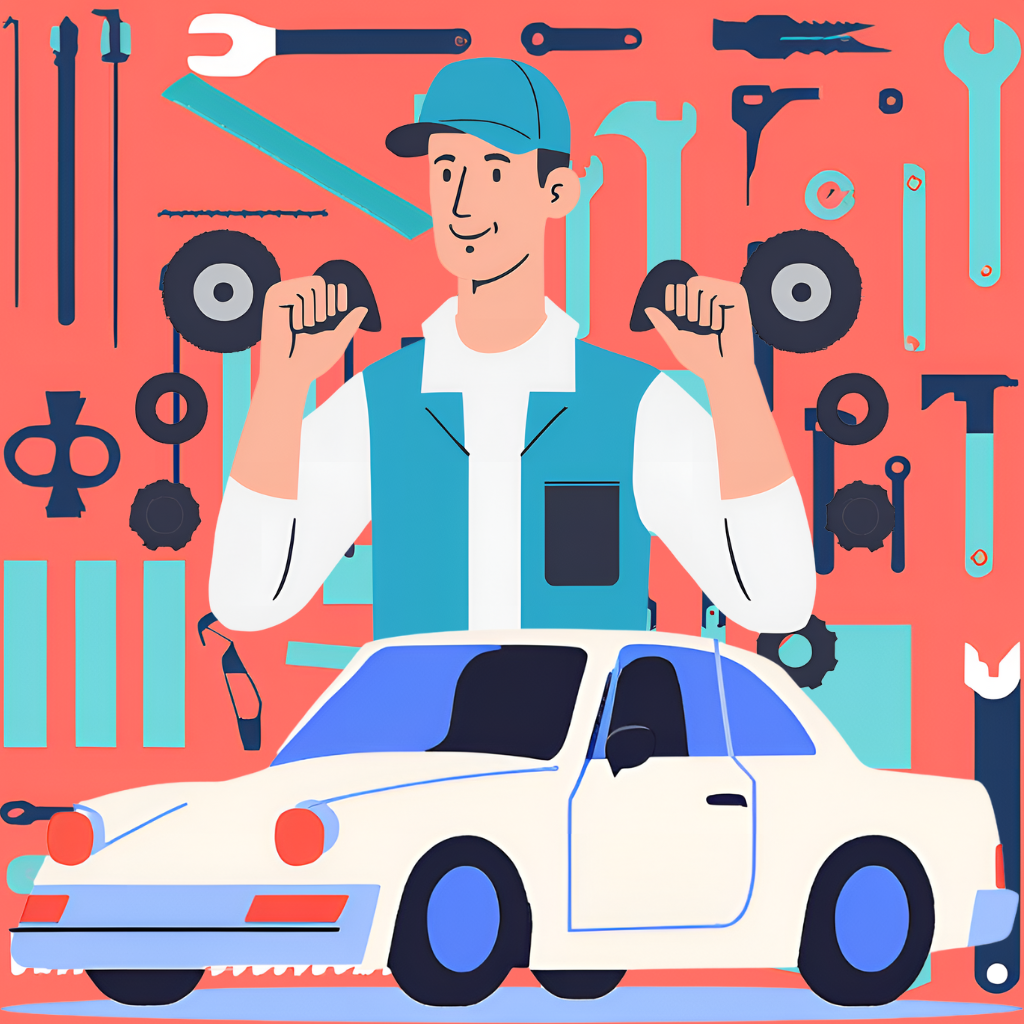We’ve all been there—that sinking feeling in the pit of your stomach when you hear that telltale clunk or rattle coming from your car. You know it’s time to face the music and take your beloved vehicle to the repair shop. But where do you start? Choosing the right auto repair shop can be a daunting task, especially when you’re worried about the cost and quality of the repairs. But it’s a choice that can make all the difference. Fear not, weary car owner – we’ve got you covered with some cost-effective tips for finding the perfect auto repair shop.
Take a deep breath, grab a cup of coffee, and let’s get started.
1.) Ask for referrals and research reputation
Start by asking your friends and family for recommendations, and also check online reviews to make sure the repair shop has a good reputation for quality work and fair prices. When researching repair shops, look for ones that are licensed, insured, and have experience working on your make and model of car. You should also opt for repair shops that have certifications from organizations such as the National Institute for Automotive Service Excellence (ASE).
2.) Don’t forget to ask about warranties and guarantees
Once you’ve narrowed down your list of potential repair shops, be sure to ask each one if they offer any sort of warranty or guarantee on their work. A warranty or guarantee can provide you with peace of mind and protection in case anything goes wrong with the repairs. For example, if you have an issue with your car shortly after getting it repaired, a warranty or guarantee can help cover the cost of any additional repairs that may be needed.
Some repair shops may offer a limited warranty that covers certain parts or types of repairs, while others may offer a more comprehensive guarantee that covers all repairs. Be sure to ask for the specifics of the warranty or guarantee, including the duration and what it covers, before deciding on a repair shop.
3.) Communicate clearly
Have clear communication with the repair shop and ask questions if you are unsure about anything. This part of the process is important to avoid any misunderstandings or confusion. By asking questions and being transparent about what you need, you can ensure that you and the repair shop are on the same page.
4.) Get estimates and written estimate
Before agreeing to any repairs, get estimates from at least two or three different repair shops and make sure you get a written estimate that breaks down the parts and labor costs. When requesting estimates, make sure that you provide a detailed description of the problem you are experiencing with your vehicle. This will help the repair shop provide a more accurate estimate.
Once you have the estimates in hand, review them carefully. Be sure to compare the parts and labor costs and any additional fees that may be included, such as diagnostic fees or environmental fees.
5.) Negotiate or consider alternatives
If the repair costs are higher than the estimate, talk to the repair shop and see if they are willing to lower the price. If they refuse, you can take your car to another repair shop for a second opinion or consider alternatives like finding a used or refurbished part.
6.) Use insurance or check for recalls
If you have comprehensive insurance, it may cover some or all of the repair costs. Before getting any repairs done, check for any recalls or safety issues that may have been issued by the car manufacturer. When a car is recalled, it means that there is a safety issue with the car that needs to be addressed. The car manufacturer will usually contact the car owners and ask them to bring their cars to a dealership or authorized repair shop to get the necessary repairs or replacements done for free. The goal of a recall is to fix the safety issue and prevent accidents or injuries.
7.) Maintain regular car maintenance
Schedule routine maintenance appointments with a trusted repair shop to keep your car in good condition and catch any potential issues before they turn into major repairs. Also, be aware that some repair shops may offer a warranty or guarantee, but may also have certain restrictions or requirements that need to be met in order to qualify. For example, they may require you to have regular maintenance performed on your car at their shop in order to keep the warranty or guarantee valid.
Conclusion:
When it comes to finding the right auto repair shop, these tips can help you save money and get the quality repairs your car needs. And don’t forget to maintain regular car maintenance to prevent potential issues down the line.
Lastly, talking with an insurance agent can be helpful in the process of getting your car repaired. If you have comprehensive insurance, it can cover some or all of the repair costs. A YourPolicy agent can also provide guidance on choosing a repair shop and getting the necessary paperwork done. So don’t hesitate to reach out to us at (866)236-0203 for assistance!







